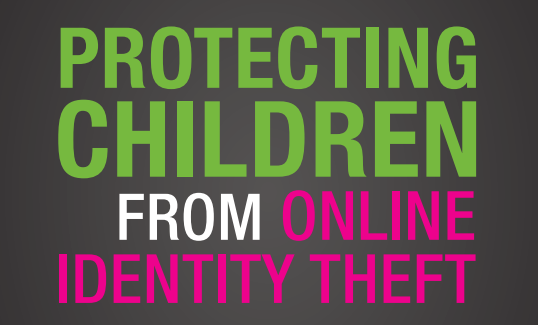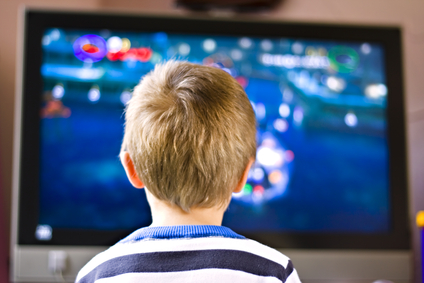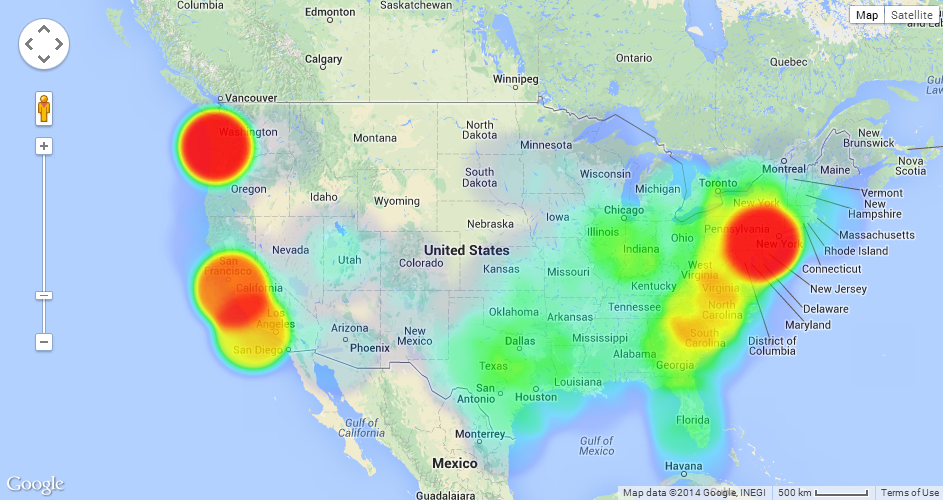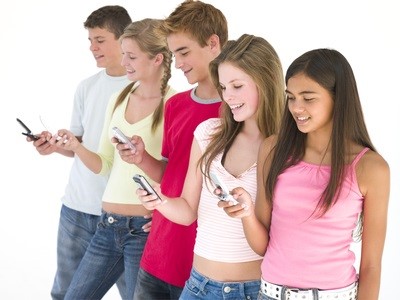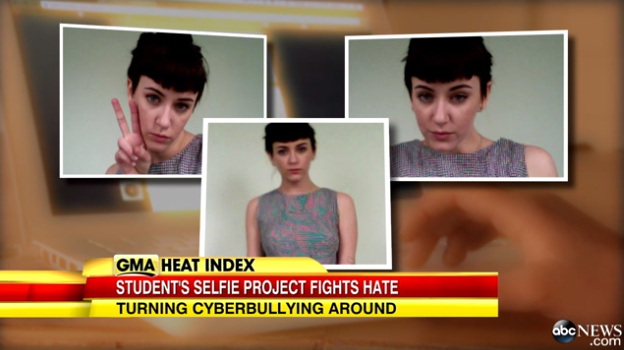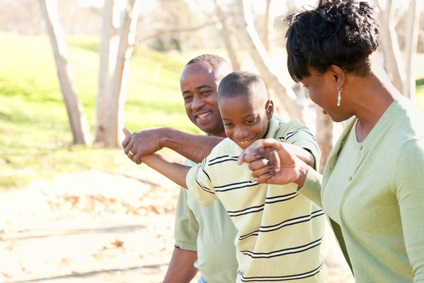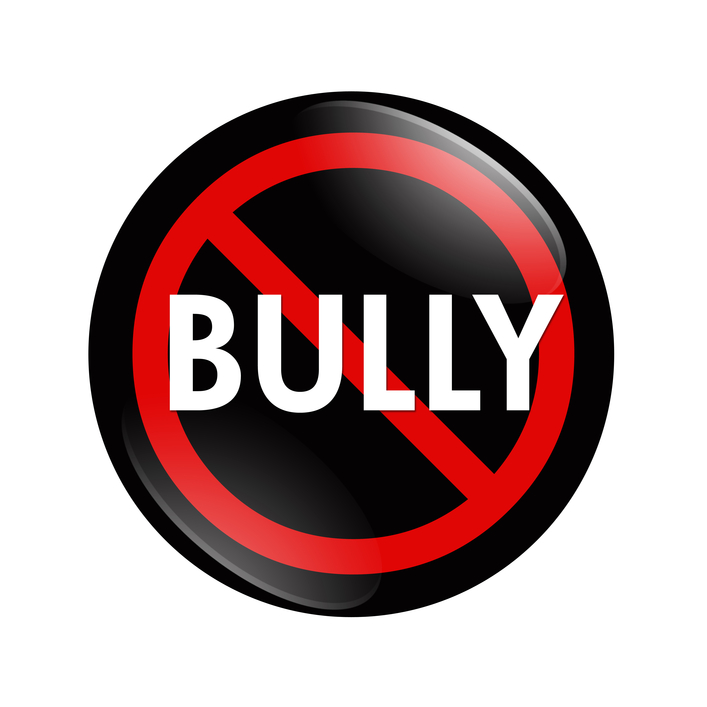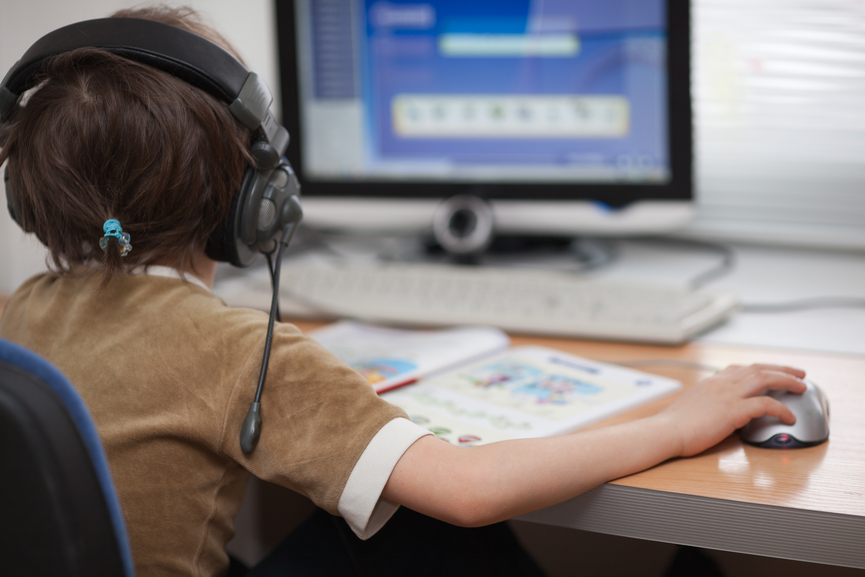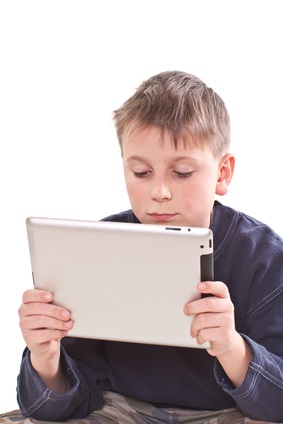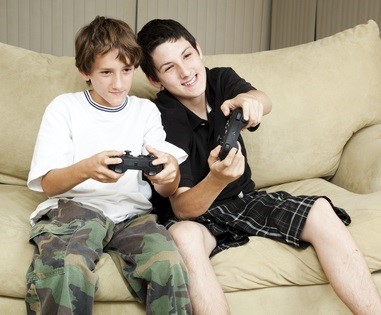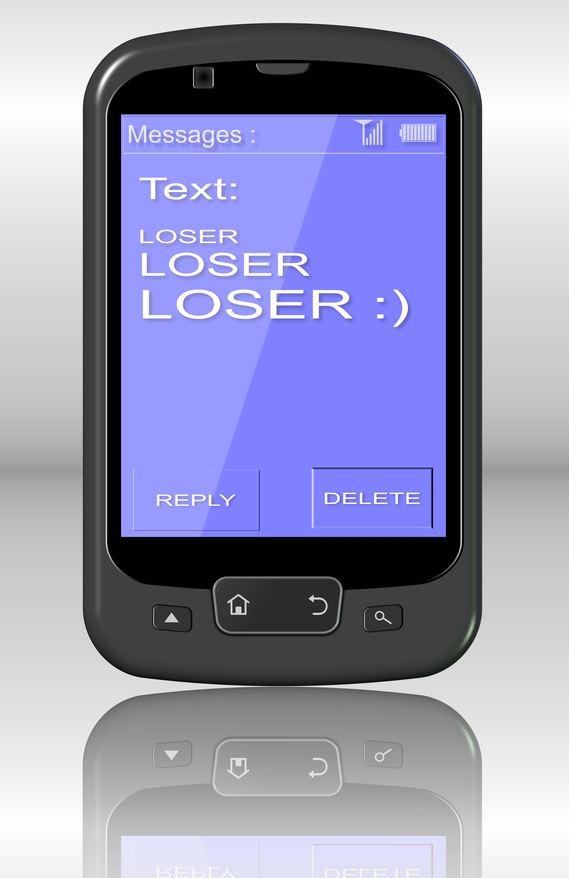Did you know that children are being targeted for identity theft 35 times more often than adults? How about that 11.5 million
Read More »Cyberbullying: Should the Buck Stop at School?
What is the appropriate course of action for schools and cyberbullying? There may not be a right answer, but here is one administrators opinion. This article was originally posted on BlogHer.
If your child is getting cyberbullied, what can you do to help? Would you call on your child’s school to unravel the complicated drama that inevitably ensues with a bullying incident? Is school the best authority over these matters?
Bullying has become a wholly different thing than it was perhaps when you were bullied in your youth. Back in the day (meaning the pre-cell phone, pre-social media era) if your group of on-again-off-again friends decided you were off-again, they got together at lunch time and sat at a different table where there was no room for you. Or they told your boy-crush that you were crushing hard on him even though you swore them to secrecy. You suffered the day in school and maybe, if it happened to be on a Friday, your so-called friends had a sleepover without you and called you up to let you know that they were all at the ring leader’s house ... and you weren’t. Your angst, anger and hurt was extended all the way through a pint of ice cream, but not much past the weekend, as your friends remembered that your group science project was at your house and it was due on Monday. So they got over their funk, and you got over your hurt. Everyone remembered why you became friends in the first place as you finished your project together. And all was well again. (Did I just tell way too much about my middle school self? Well, perhaps, but you get the point ... )
This pain and misery lasted a day, maybe two. Nowadays, with the help of technology, bullying has taken on a whole new character that is meaner, wider spread and longer lasting. Kids are hijacking the social media of others and saying harmful things in their stead. They are posting derogatory and hurtful comments on Facebook and Formspring. They are spreading unauthorized photos and video far and wide on cell phones and the Internet.
And with an impact that is so much more profound, before parents can even help their children deal with the pain, alienation and the utter blow to their self-esteem, they just want to know how to
Read More »The Decline of Online Privacy
High-profile data breaches and issues arising over who actually owns personal data have raised important questions about online privacy and the security of personal information. There is a growing sense of fear and powerlessness among the public as businesses and governments continue to gather more and more personal data. The truth is, digital privacy is becoming a myth and it will take a combination of personal responsibility and policy changes to change the tide.
Read More »Even Olympic Athletes Aren't Immune from Cyberbullying
Check out this piece about how olympic athlete Elise Christie overcame Twitter cyberbullying and fall in 500-meter final to win 1,000-meter heat. It was originally published on Yahoo! Sports.
The past week has been a whirlwind for British speedskater Elise Christie. In the 500-meter short track final, Christie crashed and took out Park Seung-hi, a Korean star in the sport.
As a result of her fall, Christie told Sports Illustrated that she received “a couple of thousand messages that were negative” on social media, many of which came from Korea. These messages were tough for Christie.
“I spent the last few days feeling quite down and struggling psychologically,” Christie said. “I came in yesterday and was quite emotional.”
Not only did she lose her chance at gold in the 500 by crashing, she also was disqualified in the 1500 for “a technicality” that her coach called a “s--- thing.”
To avoid the ongoing ugliness directed at her on Twitter, Christie suspended her own account, but then the story of the negative tweets directed toward her circulated in Britain, and thousands of Brits tweeted their support her boyfriend, fellow speedskater Jack Whelbourne. On top of that turnaround, the speedskating communities in Britain and Korea both showed their support for her.
Read More »Is Public WiFi Safe?
Public WiFi is any network connection that doesn't require a pass code or key code to access. They are open to anyone who is within range. Devices such as cell phones, tablets and laptops will pick up a signal and begin to connect with it if their WiFi setting is turned on. It makes no difference if the signal is being transmitted from a person's home, the local coffee shop or a local business.
The question of safety is always on your mind when dealing with your children and your financial information. With more and more teens having internet capabilities on their cell phones and other devices, parents are concerned with the safety of public WiFi networks. The problem is not with the networks, so much as with the devices being used to connect with it.
Who Can Connect With Public WiFi
Once an internet signal is set up and broadcasting, anyone can access it that has the pass code or access to the router. If there is no code, anyone can pick it up. This includes
-
your children
-
your neighbors
-
people passing by in vehicles
-
people walking within a certain distance
-
hackers
Could Screens be Affecting Your Child's Sleep?
When it comes to your children every parent wants the best for their health and well being. An important aspect of this is a healthy sleep pattern since proper rest aids their overall development. Sleeping is an absolutely essential part of your child's life, but with technology on the rise it's becoming apparent that too much screen time can lead to detrimental effects that could be avoided.
Cell phones, TV's, computers and other gadgets that are used on a daily basis are often linked to over stimulation especially in the evening hours. Finding a happy medium is crucial in order to ensure that today's modern connected kids can develop a healthy and regular sleeping pattern.
Why Too Much Screen Time Is Unhealthy
Read More »Meet the 13-Year-Old Using Social Media Data to Map Cyberbullying
According to the Cyberbullying Research Center:
“about one out of every four teens has experienced cyberbullying, and about one out of every six teens has done it to others.”
The Center has also found that victims of cyberbullying are nearly twice as likely to attempt suicide than youth who have not experienced cyberbullying.
The overwhelmingly widespread nature of online bullying, its potentially fatal consequences and the lack of control held by adults to stop this behaviour has made this an extremely difficult problem to solve. However, 13 year old Indian American teen Viraj Puri may have found the solution for this complex issue.
Read More »Submit The Documentary: Education on The Reality of Cyberbullying
“If what was going on online was happening in the real world, there would be people marching. There would be social change.” - Mary Kay Hoal, Submit The Documentary
Submit The Documentary is an honest and heartbreaking film that focuses on the raw reality of cyberbullying and the effects it has on America's youth. After watching a news story that reported on the suicide of an 11-year-old boy, director Les Ottolenghi saw the need to encourage parents and their children to stand tall and fight against this epidemic of online bullying.
Production on the film began in 2011 and focused on gathering the perspectives of experts, school administrators, children of various ages, and parents of the victims whose lives were cut short. Each interview supplies the documentary's audience with substantial insight on the truths that surround society's efforts to fight cyberbullying.
Read More »Are You Really Anonymous on Snapchat?
This article from the CEO of Hootsuite, Ryan Holmes, is a great look into the security of something that permeates our everyday life: social media. This article speaks about the recent breach in security that Snapchat experienced, along with the danger (and importance) of companies using social media. There are a variety of take aways, but the main one should be if corporations face these kinds of security breaches, so do consumers. Parents and their children are exposed in two ways: 1) as users of Snapchat and 2) as customers of companies that have adopted social media as part of doing business.
This is a not-so-subtle reminder that in the interconnected digital world there are consequences regarding security that could have a direct impact on all social media users. Just as hackers impacted millions of credit card holders through the Target breach successfully stealing their private financial information, we now see millions of SnapChat users impacted by hackers stealing their private personal information. Read the full article below.
Read More »Artist's Selfie Project Shines Light on Cyberbullying
Check out the inspiring article below, originally published on Yahoo!, about one woman who is turning cyberbullying on its head. And make sure to follow this link to see the awesome video!
Use Your Parental Intelligence to Parent Smarter, Not Harder
There comes a time in every parent's life, when he or she realizes they start sounding like an old person. It's a sobering moment. One when you hear yourself talking about "back in my day" or "when I was your age" and you begin the long and arduous path of beating a dead horse with tidbits of what made your generation better than your children's.
Cyberbullying: The Face Behind the Screen
This article was originally published on Psychology Today by Raychelle Cassandra Lohmann.
Laura sat at her laptop still steaming mad from the incident that had happened earlier with Michelle. "I'll show her!" she thought. Just then, Laura had an idea... "I can set up a bogus email account and create a fake Facebook page. I'll put Michelle in her place without her even knowing who did it." After a setting up her new identity, Laura became "Julie". Pleased with herself Julie launched a full blown cyber attack on her once friend Michelle. "See if she ever messes with me again", Julie laughed. On the other end of the computer, Michelle sat with her mouth gaping open. She couldn't believe what she was reading. "Who's Julie?" she thought. "What did I do to her?" Michelle's heart was beating fast and tears began to stream down her face.
The Dangers of Online Predators and How to Protect Your Family
With so many ways to access the Internet, including mobile phones, game consoles, music players and tablet devices, people have unprecedented access to information and computing capabilities. Unfortunately, email, social networking, chat rooms and instant messaging expose kids to online relationships that may be harmful and can turn dangerous when online predators are involved. Families need to be vigilant and understand the dangers and how to protect against them.
Guest Post: Simple Ways To Make Sure Your Child Is Safe Online
The endless advancement of Internet technology has put complacent parents on notice. These days, it's not only possible, but actually quite easy, to invite strangers into our homes thanks to the power of social media. Knowing when, how, and with whom our children are interacting during the time they spend online is going to be even more important in the coming years.
It might seem harmless enough to allow children onto their favorite social media sites, but there are a number of important safety measures to take before you allow them access. Here are some cyber security fundamentals to keep in mind.
Social Media Is Only as Private As You Make It
There's good news for parents: social media sites like Facebook have a number of built-in settings to help your child maintain a low profile while they're online. Sit with your child and guide them through the process of setting their profiles to private, including their online photo collection. This is arguably the first and most important step toward ensuring that their personal information stays personal.
Teens and Adults Agree: Education Diminishes Sexting Dangers
Check out this article by the University of Massachussettes Lowell about a recent study involving sexting and recommendations to avoid risky digital behavior.
Research by Assoc. Prof Andrew Harris and Assoc. Prof. Judith Davidson provides concrete data and recommendations related to the use of technology in young adult romantic relationships. Dubbed “sexting” by media outlets, the term involves sharing suggestive photos or messages, mostly by phone. Their paper, “Building a Prevention Framework to Address Teen ‘Sexting’ Behaviors,” details results from their research and provides insights from teens, the group least often consulted about youth behavior and motivations.
“There have been other studies about ‘sexting’ and related behaviors, but they didn’t try to understand what the kids are feeling and how their values influence their actions,” says Harris, who is also the associate dean of Research and Graduate Programs for the College of Fine Arts, Humanities and Social Sciences. “Much of the conversation has been based on limited data and knee-jerk reactions. We found that it is difficult to define ‘sexting’ behaviors and motivations in social context.”
How To Combat Cyberbullying In Online Games
While “lives” can be gained and lost with the click of a button in the online gaming world, everyday real-world lives are being affected by the things that happen in games. Recently the developers of the game, High School Story, made news by adding a cyberbullying storyline into the game. This was done after a call came into their technical helpline that included a player saying she was thinking about taking her own life. Taking into account the competitive nature of games, it is easy (just as in real world games and athletics) for things to escalate into bullying.
You Caught Your Kid Sexting, Now What?
This article was originally posted on the Huffington Post by Rachel Busman, PsyD.
I am getting asked more and more in my practice about how to talk to teens about situations that involve racy interchanges on Facebook, sending inappropriate pictures via text, and other Internet situations that spiral out of control. As the social media landscape continues to grow and change, these questions are coming up more and more and parents are looking for answers.
Cyberbullying Versus Traditional Bullying
This article is from Psychology today and compares traditional bullying with cyberbullying.
Just how different is traditional bullying from cyberbullying? Studies are beginning to show that the way youth bully online is a lot different from traditional schoolyard bullying. Teens may think what they are posting or texting is just a joke, but if you're on the receiving end it may not be all that funny. In fact, if the "joking" is repetitive, it could cross the line into bullying, more specifically cyberbullying. According to the American Academy of Pediatrics cyberbullying is the "most common online risk for all teens and is a peer to peer risk."
21 Powerful Tips To Prevent Kids Cyberbullying
This article was originally posted on BlogHer and written by WomenLoveTech.
I get sick in the stomach when I read about teenagers taking their own lives after extensive online bullying. Nearly 80% of kids under 10 use social media. I urge you to take cyberbullying seriously. The Internet is a great place to learn, to be entertained, to share and communicate, but not a place for bullying.
Up to 35 percent of 8 to 11 year olds have their own mobile phone, rising to 94 per cent of 16 to 17 year olds. Children and young people are increasingly gaining access to the internet via their mobiles, yet only a very small percentage have discussed cybersafety with their parents.
I hope these 21 powerful tips to prevent kids cyberbullying will guide you and will help your kids. Please share this list with them.
1. Do not respond to any cyberbullying message, block the person and tell a trusted person.
2. When you are upset, walk away from your computer or your smartphone.
3. Do not write anything against another person, one day you will regret it but it will be too late.
4. Do not share with anyone (except parents) your passwords, your BFF is not an exception.
Ciara Writes an Open Letter to Cyberbullies
Even famous celebrities are taking notice of cyberbullying.
I used to sometimes like visiting some of the blog sites to see what new things are happening in the world! Things like cool photos, current events, etc. But nowadays it seems like there's a competition with sites on "Who Can Tear Someone Down the Most." The stories are going from cool and creative to pure drama. Even the comment sections are beginning to get out of control and people are using the platforms to exercise a false sense of power. Singer Ciara wrote an open letter to cyberbullies on her blog. Check it out!
Read More »
